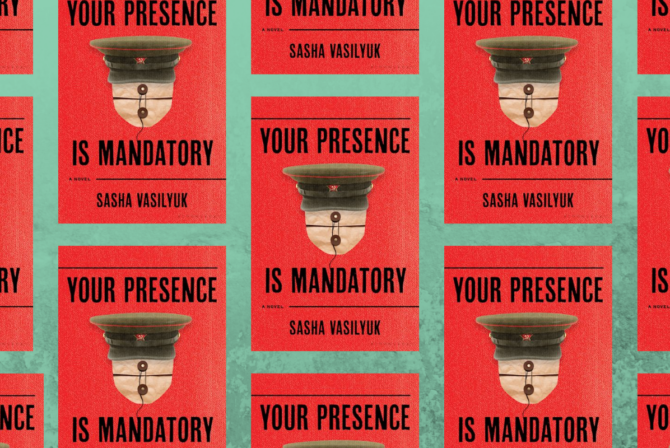Men and women who absolve the bad behavior of their partners will only end up with partners who behave worse. Or so says a new study published in the Journal of Family Psychology.
An associate professor at the University of Tennessee, James McNulty, asked 135 newlywed couples, “Did your spouse do something negative today?”
The couples may have recently returned from their honeymoons, but they certainly weren’t in La La Land when it came to assessing their partner’s shortcomings. As reported by the husbands, 22 percent of the wives were argumentative, and the wives reported that 26 percent of the husbands neglected them. (It was unclear what percentage of wives were argumentative because their husbands neglected them.)
McNulty then asked the spouses whether they’d forgiven the bad behavior.
McNulty found that partners whose partners forgave them were almost twice as likely to transgress again the next day, as opposed to spouses who had taken a harder line. Worse, among spouses who had varied their reactions—swinging between showing mercy and staying ticked off—instances of forgiveness left their mates six times more likely to keep being their crappy selves.
“It’s time, people, to stand in judgment of the ones we love most–because once we do, the world begins to turn in our favor. Our wayward–or insufferable–spouses heel,” New York Magazine wrote on the study.
Now, maybe it’s just me, but I think you start running into trouble when you use words commonly used to command a dog in reference to your spouse. Kibble, anyone?
It’s foolish to read this study as an instructional guide on “how to keep your spouse in line.” The study doesn’t–and can’t–reflect the nuances of a relationship accurately. It can only take note of the actual responses to actual actions. So there’s a flaw from the beginning: the internal mental and emotional architecture is missing from the analysis.
I am fairly certain that I occasionally piss off my husband just by being myself. There are those who have called me “messy.” I even dimly recall my mother calling me a “slob” once or twice. While I prefer the term “creative chaos,” it seems foolish to quibble about vocabulary when the fact of the matter is that I have married a neatnik who once asked me if I had ever used a Dustbuster in my car. (That was so funny! I laughed, and laughed…and then realized he wasn’t joking. Awkward.)
As a responsible spouse, it’s important to do two things before yelling at and/or reprimanding your spouse. First, accurately gauge what behavior is annoying you, and why. Something small may bother you particularly, for example, because of a past relationship, whether with your parents or a previous partner or spouse. Your partner is not a mind reader and can’t know this is a sore spot until you tell them. Gauging why may make you realize you’re being unreasonable—maybe the bathmat doesn’t HAVE to be in line with the tiles every morning. Or maybe you are feeling pissy because your paycheck hasn’t arrived and you feel strapped for cash (hypothetically speaking)–those things have nothing to do with your partner (unless you’re married to your boss, in which case, God help you).
Second, you need to clearly communicate your feelings, the reasoning behind them, and that you have some idea of the behavior that could make the situation better.
Also, newlyweds haven’t had so many opportunities to practice the whole you-piss-me-off-and-here’s-why conversation pattern yet. Adjusting to living together as new spouses isn’t always easy. What one person considers “an easy way to locate things” can be what another person thinks of as “disgusting.” (Again, hypothetically.) That’s part of what learning how to be married is–figuring out what will create a climate where you can say to your spouse, respectfully (and maybe even with humor), “Hey – how about you give ‘opening the bills the day they arrive, instead of hiding them under piles of crap’ a try?”
I’d argue it will do more for your marriage than having a spouse who, after being reprimanded/made to cry, opens bills more regularly (i.e. “correcting” the behavior because they weren’t “forgiven”), but does so out of fear and resentment rather than love.
As perfect a wife as I am, there may be things I do out of habit, like not Dustbusting my car, that annoy the crap out of my husband. But here’s the thing: each time I realized just how much these things matter to him–and how little they matter to me–I started making an effort to change. Not because he yelled at me, but instead because he made it clear that he loves me even though I’m a slob. (At least, I’m pretty sure he does.) I now fold my towel into the requisite thirds (though it never really looks as good as his towel). And look at how open and accepting I am: I love him, even though he is neat and responsible.
My point is that “bad behavior” may not be so bad in the first place, but what’s most important, even if it is, is to be honest with yourself and then honest with your spouse. The path to marital bliss isn’t bringing your spouse in line so much as bringing yourself in line–being true to yourself, what you are and want. Honesty, in this case, rather than threats, is what’s truly the best policy.







